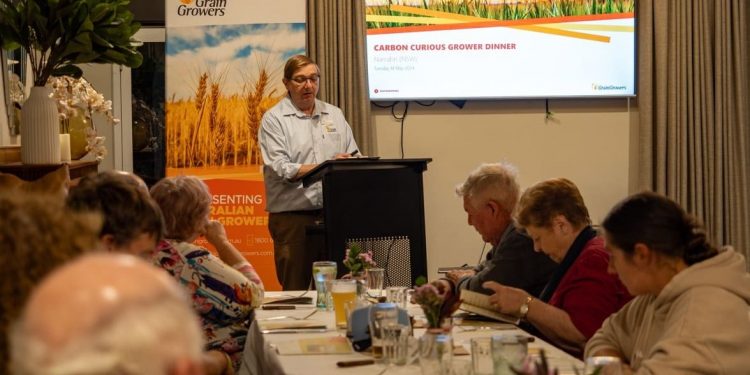Leveraging Carbon Baseline Data for Enhanced Productivity and Profitability
Philadelphia, PA — According to GrainGrowers acting general manager of major projects Sarah Hyland, growers could see significant increases in productivity and profitability through the insights gained from gathering data on carbon emissions. This correlation between improved financial outcomes and data gathered from carbon baselining underscores the importance of understanding and managing carbon emissions in agriculture.
Ms. Hyland noted that leading bulk handlers such as CBH Group, GrainCorp, and Viterra may soon request this information from growers, as Federal Government legislation is currently being debated in the House of Representatives.
During the inaugural Sustainable Ag Summit last month, Hyland, who is also leading the effort to revitalize the Australian Grains Sustainability Framework, highlighted that reducing costs often aligns with reducing greenhouse gas emissions. She emphasized that optimization is key to driving emissions reduction, with Australian growers already being among the lowest carbon emitters in the world.

Ms. Hyland pointed out that gathering baseline data and comparing it to new data after changes in practices can reveal unexpected insights and drive improvements. For instance, one grower discovered that crop residue decomposing was a significant source of emissions, contrary to their initial belief that diesel use was the primary source.
Federal legislation currently under debate may mandate sustainability reporting for businesses above a certain size, potentially including Scope 3 emissions, which cover indirect emissions during grain production. Although most farming operations may not meet the size criteria, Hyland emphasized that reporting emissions will likely become a standard practice in the future.
GrainGrowers aims to assist growers in measuring and benchmarking their emissions. The organization recently hosted Carbon Curious Grower Dinners to educate growers on carbon developments and is working on reinvigorating the Grains Sustainability Framework. The new framework aims to define sustainable Australian grain and enable growers to compare their operations against national benchmarks.
Ms. Hyland stressed the importance of tracking data and establishing a transparent system that can demonstrate best practices and improve market competitiveness. The GrainGrowers’ goal is to have a final framework released by June 2025, providing a comprehensive tool for growers to enhance both their environmental and economic performance.
Error




